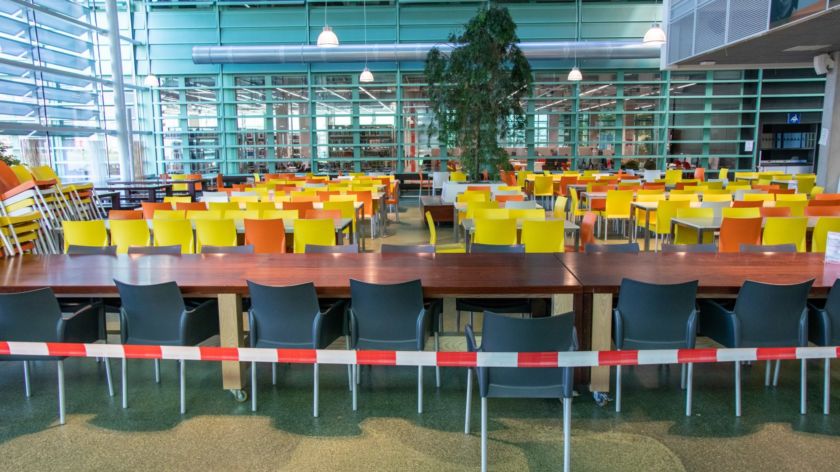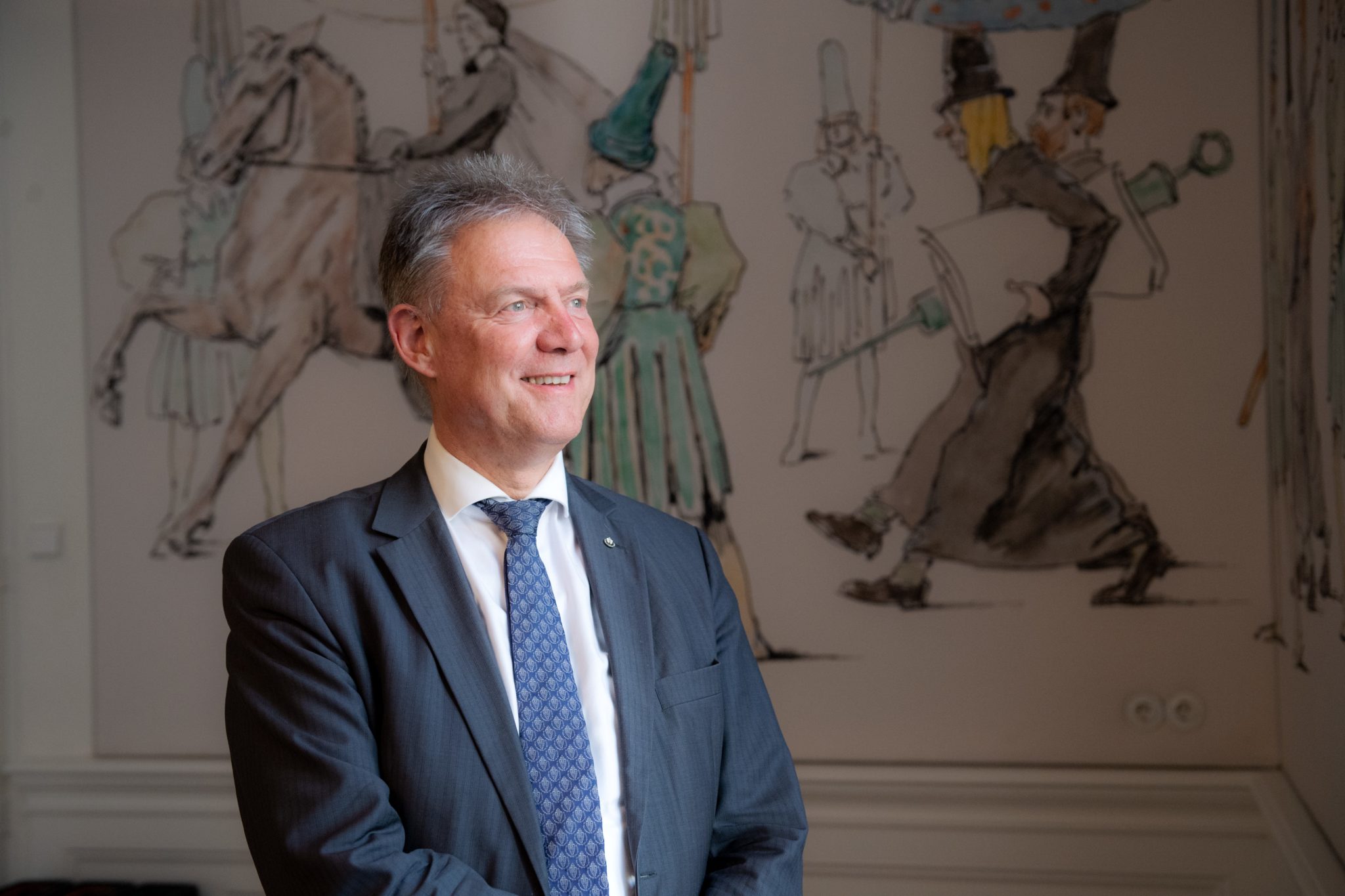Rector wants cabinet to discuss physical teaching
-
 Foto: Rein Wieringa
Foto: Rein Wieringa
Last week the cabinet presented a relief package of 645 million euros for higher education. Have problems for students now disappeared? Not exactly, said rector Han van Krieken. He is eagerly looking forward to the moment when physical teaching is again possible. 'We have to dare to differentiate between people who are immune and those who aren’t.'
Last week the cabinet passed a major financial relief package for education. Universities and universities of applied sciences will receive 645 million euros annually to compensate for the larger number of students. And for students there was more good news: next year their tuition fees will be reduced by fifty percent whether or not they encounter delays in their studies. Moreover, the public transport card for students will be extended for a maximum of one year.
Problems for later
‘It’s taken a long time, perhaps too long, but I’m happy that there’s now financial support,’ said rector Han van Krieken in his reaction to the cabinet’s plans. ‘This package goes a long way to alleviating the financial worries of students and education during this corona crisis. That’s important, of course. But we see that these aren’t the biggest problems at the moment. We are especially concerned about students’ welfare. That we can’t offer physical teaching and can’t meet one another are the biggest obstacles right now.’
This is why Van Krieken is particularly interested in the cabinet’s ambition to make on-campus teaching possible again as of the start of the new academic year. ‘The cabinet has indicated that the success of that ambition depends on how the virus develops and the progress of the vaccinations. Nevertheless, I think that’s the most important news. It would be an enormous help if students could return to campus again. I think that’s a wonderful goal.’
But, Van Krieken warned: ‘Then the government has to be prepared. Politics is always about problems now, but we have to try to avoid future problems. We have to ask ourselves who should be allowed to come to campus. Only vaccinated students? Also students who have had the virus? Which fast tests will we use? And what should we do about those who refuse to be vaccinated or tested?’
Shouldn’t the university arrange this itself?
‘This discussion has to be held in The Hague. That’s what I’m calling attention to, both at the ministries and among politicians, but unfortunately there’s little response. I really hope that they’ll take action soon in order to be prepared on time.’
Why has there been so little discussion?
‘The crux is that you have to dare to differentiate between people who are immune and those who aren’t. Perhaps politicians find that a difficult subject, which is why they’ve avoided the discussion so far. That’s too bad because we continue to fall behind.’
What are the consequences if this discussion isn’t held?
‘Then there’s no clarity for us; we’ll probably have to partially continue online teaching. Another question is whether all students and their teachers are ready to take part in groups again. The test at NEC last weekend was a good example. Only 1300 people were in the stadium even though there was room for 1500. I heard from people that they had wanted to go to the stadium, but they were unsure of how things were organised and of the safety. If we don’t discuss these issues, the same thing will happen at the university later. That would be extremely disappointing.’
Back to the financial picture. You’re also critical of the reduction in tuition fees. Why?
‘Of course it’s wonderful for all those students who can use this reduction. But many students have encountered no delays in their studies and will graduate this summer on time. I don’t think it’s fair to them: they’ve missed a lot because of the corona crisis but they can’t take advantage of the reduction.’
‘The quality of education is lacking in some areas, but I don’t think it’s logical to link that to tuition fees’
‘In healthcare programmes, for example, you also want people to start working right away. So I’d prefer for students to receive a voucher for half or preferably an entire year of tuition fees that they can use whenever they want. For example, they could follow courses when they work in order to update their skills.’
Once again: did you propose this in The Hague?
‘I’ve mentioned it at several places without any success as yet, but plans still have to be worked out in detail so I hope some changes will be made.’
What are the good features of the package?
‘The extra year of public transport for students. It’s very important for students that they don’t have to worry about their transportation. I’m very happy that the relief package solves such practical problems.’
The relief package doesn’t go far enough for some students. They say that they should get part of this year’s tuition fees refunded. Do you agree?
‘That has to be a national decision, but the minister has already said that she won’t do this because the costs for higher education are in fact higher in the corona pandemic. I don’t think that’s a silly argument. We still have to maintain the campus and we’re also bearing the costs of digital teaching.’
But isn’t it logical that students want to pay less if they get less quality?
‘I don’t agree even though I understand the reaction. According to that same logic, tuition fees should rise if the quality increases. Should students in a programme that is better evaluated pay more than those in a less highly evaluated one? I say no. Fortunately, our education isn’t a market of supply and demand but a facility for which the government pays the largest share of the tuition fees.’
It feels to students as if the university has changed into a refined streaming service.
‘I’m aware that the quality of education has declined in some areas, but I don’t think it’s logical to link that to tuition fees. Plus, students are fortunately getting their course credits.’
If you look at the whole picture, do you think the government is doing enough to help students?
‘That’s a difficult question. In this crisis, money is not the problem for universities and the government. This package has solved a lot of practical problems for students. The problem lies elsewhere: students can’t develop themselves sufficiently, they can’t go out, they can’t meet up with one another. Unfortunately, that can’t be solved with money. But it can be solved in the long run with good policies. That’s why I emphasise how important it is that students can come together without problems in the new academic year.’




